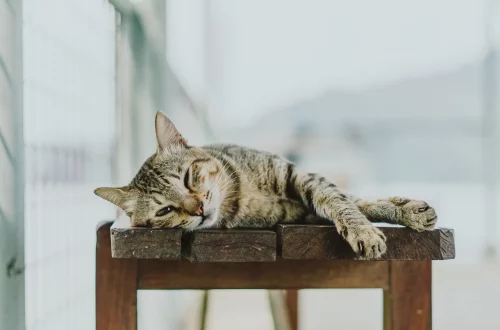
Understanding Why Your Guinea Pig Is Sneezing and What to Do
Guinea pigs are charming pets that bring joy and companionship to many households. Their gentle nature and playful antics make them a favorite among small animal enthusiasts. However, like all pets, they can experience health issues that may concern their owners. One common behavior that often raises alarms is sneezing. While it might seem innocuous at first, sneezing in guinea pigs can be a symptom of various underlying conditions. Understanding the reasons behind this behavior is crucial for any guinea pig owner.
Sneezing can be perplexing, especially when it seems out of character for your furry friend. It’s essential to pay attention to the context in which the sneezing occurs, as it can range from something as simple as a reaction to dust or allergens to more serious respiratory issues. Being able to differentiate between benign and concerning sneezing can help you provide the best care for your guinea pig. By observing your pet closely, you can determine whether the sneezing is an isolated incident or part of a larger pattern that may require intervention.
In the following sections, we will delve into the various reasons why your guinea pig might be sneezing, the signs to watch for, and the steps you can take to ensure your pet’s health and well-being.
Common Causes of Sneezing in Guinea Pigs
There are several reasons why a guinea pig might sneeze, and understanding these causes can help you identify whether your pet is experiencing a minor irritation or a more serious health issue. One of the most common reasons for sneezing is the presence of dust or allergens in the environment. Guinea pigs are particularly sensitive to their surroundings, and any changes, such as new bedding or dusty hay, can lead to sneezing fits.
Another common cause is respiratory infections. These infections can be viral or bacterial and may manifest with other symptoms, such as nasal discharge, lethargy, or loss of appetite. It’s essential to be vigilant if sneezing is accompanied by these additional signs, as they can indicate a more serious health concern that may require veterinary intervention.
Additionally, dental issues can lead to sneezing in guinea pigs. Overgrown teeth can cause discomfort and even lead to respiratory problems if the teeth press against the nasal passages. If your guinea pig is sneezing frequently and also showing signs of difficulty eating or chewing, a dental examination may be necessary.
Moreover, environmental factors such as humidity levels can contribute to sneezing. Guinea pigs thrive in a specific range of humidity, and excessively dry or humid conditions can irritate their respiratory tracts. Ensuring that your guinea pig’s living environment is optimal can help prevent such issues from arising.
Finally, stress can also play a role in sneezing. Changes in routine, loud noises, or the presence of other pets can cause anxiety in guinea pigs, leading to sneezing as a stress response. Monitoring your pet’s stress levels and providing a calm environment can help reduce these occurrences.
Signs That Indicate a Serious Issue
While occasional sneezing can be normal for guinea pigs, certain signs may indicate that your pet is facing a more serious health problem. It is crucial to be aware of these signs so that you can seek veterinary care if needed.
If your guinea pig is sneezing frequently and this behavior is accompanied by nasal discharge, it may suggest a respiratory infection. Discharge can be clear or colored, and any change in consistency or color should be taken seriously. Additionally, if your pet’s sneezing is accompanied by coughing, wheezing, or labored breathing, these symptoms can indicate a severe respiratory issue that requires immediate attention.
Another concerning sign is a change in behavior. If your guinea pig becomes lethargic, loses interest in food or water, or appears to be in pain, it’s essential to consult a veterinarian. Changes in appetite can be particularly telling; guinea pigs that are unwell may stop eating their usual diet, which can lead to further health complications.
Weight loss is another critical factor to consider. If your guinea pig is sneezing but also losing weight, it’s vital to have them examined by a veterinarian. Weight loss can be a sign of underlying health issues that may not be immediately apparent.
Lastly, observe your guinea pig’s grooming habits. If they start to neglect grooming or develop an unkempt appearance, it could indicate that they are not feeling well. Healthy guinea pigs are usually active groomers, and any deviation from this behavior should prompt further investigation.
How to Help Your Sneezing Guinea Pig
If you notice your guinea pig sneezing, there are several steps you can take to help alleviate the issue and ensure your pet remains healthy. First, assess the environment. Make sure that your guinea pig’s living area is clean and free from dust and allergens. Regularly clean the cage and replace bedding with a dust-free alternative. This simple step can significantly reduce sneezing caused by environmental irritants.
Next, monitor your pet’s diet. Ensure that they are receiving high-quality hay, fresh vegetables, and clean water. Avoid feeding them foods that could lead to allergies or digestive issues. If your guinea pig seems to be particularly sensitive to certain types of hay or vegetables, consider experimenting with different options to find a suitable diet that minimizes sneezing.
If you suspect that your guinea pig might have a respiratory infection or dental problem, it’s essential to consult a veterinarian. A qualified professional can perform a thorough examination and provide guidance on the appropriate treatment. Never attempt to diagnose or treat your guinea pig without professional advice, as this can lead to more significant health issues.
Furthermore, if your guinea pig’s sneezing is related to stress, strive to create a calming environment. Provide plenty of hiding spots, gentle toys, and minimize loud noises. Spend quality time with your pet to help them feel secure and comfortable.
Lastly, consider the humidity and temperature of the living space. Guinea pigs thrive in environments that mimic their natural habitat. Ensure proper ventilation and maintain a moderate temperature to keep your pet comfortable.
When to Consult a Veterinarian
Knowing when to seek professional help for your sneezing guinea pig is crucial for their health and well-being. While occasional sneezing can be normal, certain circumstances warrant immediate veterinary attention. If your pet’s sneezing persists for more than a day or two, it’s advisable to consult a veterinarian.
As previously mentioned, any signs of respiratory distress, such as difficulty breathing, wheezing, or coughing, should prompt an immediate visit to the vet. Similarly, if you notice any changes in your guinea pig’s behavior, appetite, or weight, it’s essential to seek professional advice. These changes can be indicators of underlying health issues that need to be addressed promptly.
Additionally, if your guinea pig develops nasal discharge that is colored or thick, it’s time to consult a veterinarian. This symptom can indicate an infection that may require antibiotics or other medical treatment.
Furthermore, if you observe any signs of pain, such as grinding teeth, reluctance to move, or a hunched posture, do not hesitate to seek veterinary care. Pain management is essential for a guinea pig’s overall health, and a veterinarian can provide the best course of action.
In conclusion, while sneezing in guinea pigs can sometimes be a benign occurrence, it’s essential to stay vigilant and attentive to your pet’s health. By understanding the potential causes and signs of serious issues, you can take proactive steps to ensure your guinea pig remains happy and healthy.
**Disclaimer: This article is not intended as medical advice. If your guinea pig is experiencing health issues, consult a veterinarian for professional guidance and treatment.**




